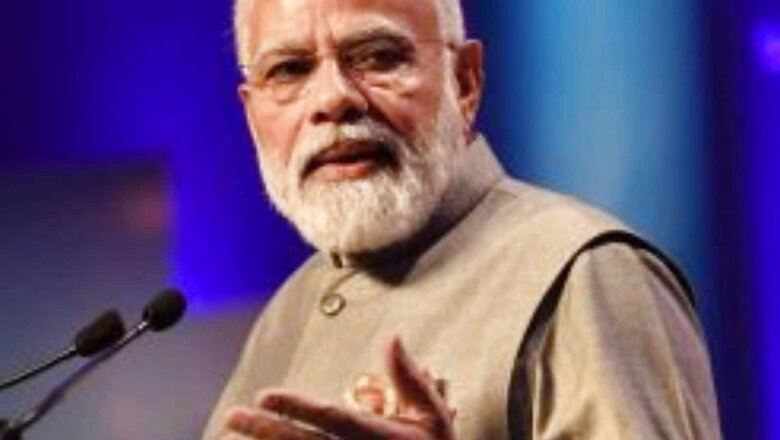
views
The impacts of climate change are no longer just visible in the developing world. In 2022 itself, the effects were seen across the globe from heatwaves in India, to high temperatures in the UK to forest fires across several European nations. Most of these impacts are induced by anthropogenic activities. G20 which is a group of 19 countries and the European Union is responsible for most of the world’s greenhouse gas emissions. The countries make up about 2/3rd of the world population and 80% of Global GDP. The constituents of this group hold considerable sway over the world’s action towards climate change.
In the past, there have been pledges taken, ideas discussed but seldom have these been implemented. India has a special role to play to change this pattern. Taking charge of the G-20 presidency this year from 1 December 2022 to 30 November 2023, India has a huge opportunity to implement measures to combat climate change.
According to the May 2022 report titled, “KEEPING 1.5°C ALIVE”, none of the G20 countries have so far made climate commitments consistent with limiting global temperature rise to 1.5 degrees Celsius, as the Paris Agreement stipulates. The report also highlighted how all G20 nations just have this year to think how they can do more before 2030 to keep the 1.5°C target alive. It is now important to both raise the ambition of their climate targets and set out clear policies to achieve them.
The first time the G20 discussed the issue of climate change was in 2008. Ever since, several promises have been made but they have rarely been fulfilled. The group still accounts for about 80% of the total greenhouse gas emissions. At each summit, climate commitments averaged up to 3% of the total, ranging from 1% in Beijing in 2016 to 9% in Japan in 2019. Based on these facts, we may infer that the majority of G20 nations have not succeeded in creating and implementing new policies or, more importantly, in allocating the necessary resources to make significant carbon reductions.
Existing climate change commitments by G20 are not enough to prevent the catastrophic climate effects. It is now India’s opportunity to make climate change a centre stage of G20’s agenda following the “Common But Differentiated Responsibilities” approach. Climate change has been worsening the way of life in the Global South. There are issues surrounding food security, livelihoods and extreme weather events. There is an imperative need for not only immediate climate action but also for climate justice.
India can be the voice of unheard because currently it is in the developed world where the decisions are taken for the Global South. This would give India the leeway to bring millions out of poverty and also help prevent rise in global temperature. This can be done by creating mechanisms which allow climate financing. This financing should be in excess of the $100 billion per year already committed in COP15. This can be used in helping developing countries to move away from highly polluting sources of energy such as coal. This fund can also be used to help countries increase their adaptability for climate change. This can be done by using this fund to reinforce present infrastructure including cities, agriculture, supply chains etc.
A stronger commitment by the historical polluters such as the US and the EU is needed which includes higher cuts in emissions to be made. A push towards a global carbon credit framework which allows lesser developed countries to cut emissions has to be brought in. This framework should cover all aspects of carbon emissions including transportation, energy generation, agriculture, infrastructure development. Even developing countries like India have a responsibility to not take the path that these historical polluters have taken. They have to take an alternative route of developing with minimum carbon emissions.
Several G20 countries have either not submitted their nationally-determined contributions or are the same as or weaker than previous NDCs. Many major emitters have failed to communicate about their progress and targets. India can voice for formation of a structured mechanism that monitors and evaluates the progress, commitments and targets of the nations. This mechanism can monitor existing retrofitting of infrastructure to make them more climate resilient and friendly. This mechanism can help the countries to monitor themselves and each other.
With strong commitments made along with recent several bilateral agreements with different G20 nations about climate change, India is at the most suitable position to put tasks into motion. This is India’s chance to play an important role in global climate governance.
Mahek Nankani is Assistant Programme Manager, The Takshashila Institution. Harshit Kukreja is Research Analyst, The Takshashila Institution. The views expressed in this article are those of the authors and do not represent the stand of this publication.
Read all the Latest Opinion News and Breaking News here




















Comments
0 comment